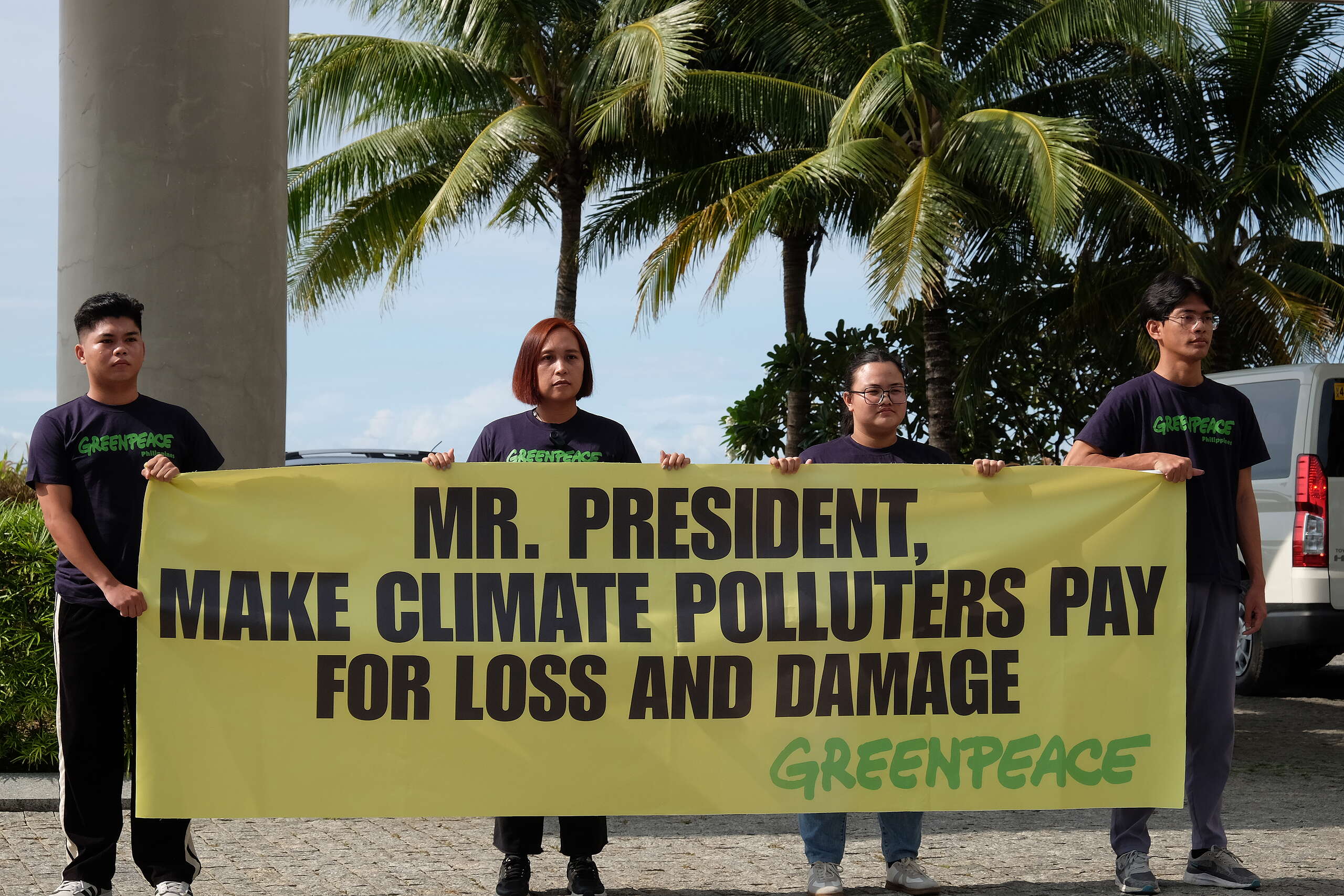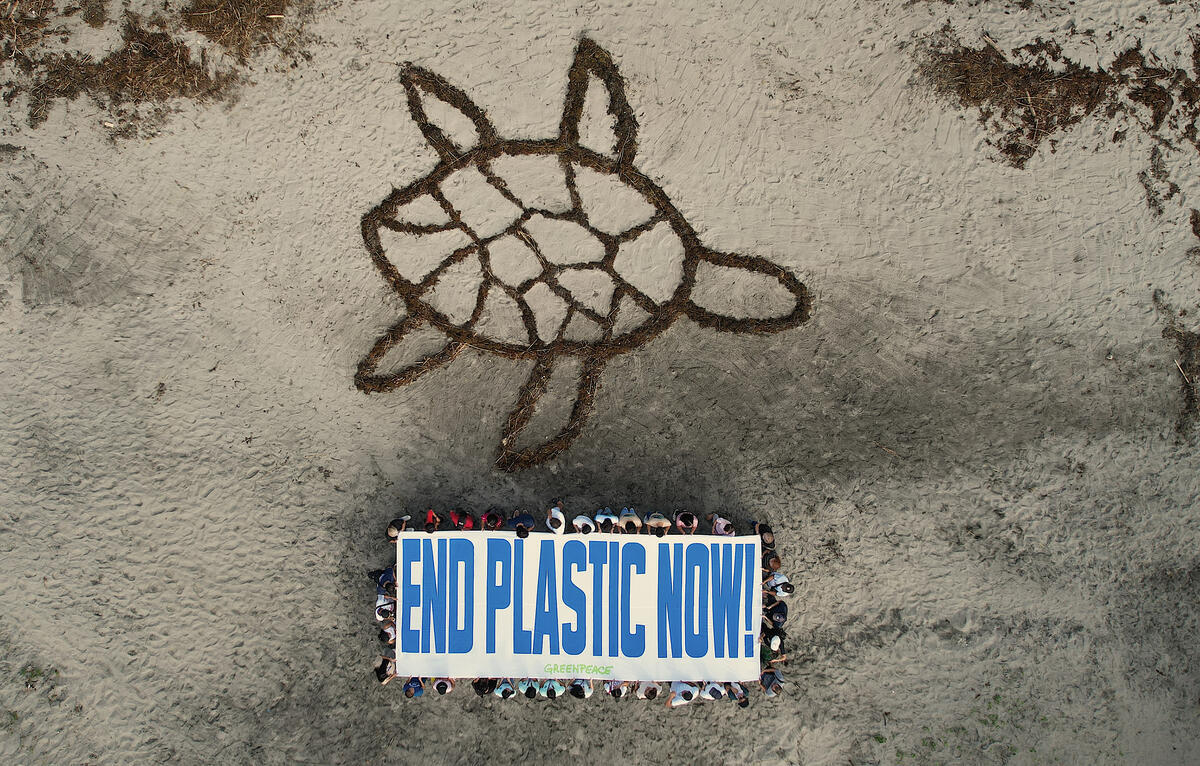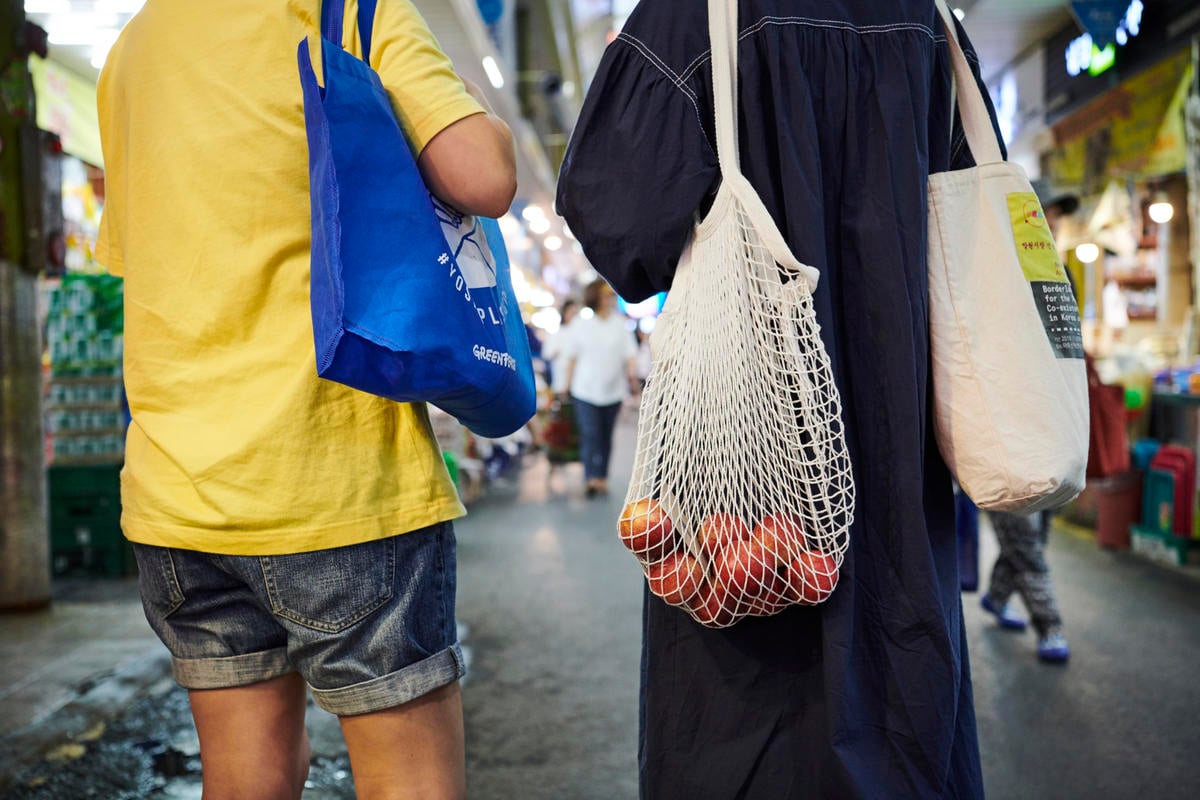Seven container vans of Australian waste was recently discovered in Misamis Oriental, which is said to be consigned to Holcim Philippines, Inc. In an interview, Holcim said they will use the garbage as an alternative fuel for producing cement.
In reaction, Abigail Aguilar, campaigner for Greenpeace Southeast Asia – Philippines, said:
“The Australian trash in Misamis Oriental is unacceptable, reprehensible and deplorable. Why do we need to repeatedly remind the world that WE ARE NOT A GARBAGE DUMP? Illegal waste dumping to developing countries should be stopped at all costs. We refuse to be treated as rich countries’ trash dumps. The Philippines is still reeling from the issue of Canadian waste that, after more than half a decade, the Canadian government is still not taking responsibility for.
“Furthermore, Holcim’s excuse that the imported waste will be used as an alternative fuel for its cement production should be further scrutinized. The use of waste-to-energy is illegal in the Philippines under the Clean Air Act and the Ecological Solid Waste Management Act. Waste-to-energy technologies harm our people and our environment, and further contribute to the destruction of our climate. These types of technology have no place in a country that struggles from the effects of the climate crisis.
“We laud the Bureau of Customs for practicing due diligence and vigilance to these kinds of illicit transactions.
“This might not be the last of these waste importation scandals, which is why Greenpeace has been consistently calling on the Philippine government to ratify the Basel Ban Amendment. Just weeks ago, the Basel Convention was amended to prohibit the importation of mixed, unrecyclable and contaminated plastic waste without prior informed consent of developing countries [1]. However, ratifying the Basel Ban Amendment will plug the loophole that allows the shipment of other forms of hazardous waste under the guise of ‘recycling’[2]. Recyclable or not, trash is trash, and we as a country should be steadfast in refusing its entry to our shores.
“For Australia, South Korea, Canada, and many other developed countries that see Southeast Asian countries as trash bins [3], know that now is the time to reduce your waste. Recycling is a myth that has failed you as much as it failed developing countries like ours. Your waste has no place in our country, and we Filipinos will never accept your trash.”
Notes to the editor:
[1] UN Decides to Control Global Plastic Waste Dumping. https://www.breakfreefromplastic.org/2019/05/10/un-to-control-global-plastic-waste-dumping/
[2] Basel Ban Amendment. http://www.basel.int/Implementation/LegalMatters/BanAmendment/Overview/tabid/1484/Default.aspx
[3] DISCARDED: Communities on the frontlines of the global plastic crisis. https://wastetradestories.org/
Contact:
Abigail Aguilar, Campaigner, Greenpeace Southeast Asia – Philippines
+63 998 589 2551 | [email protected]
Angelica Carballo Pago, Media Campaigner, Greenpeace Southeast Asia – Philippines
+63 949 889 1332 | [email protected]



